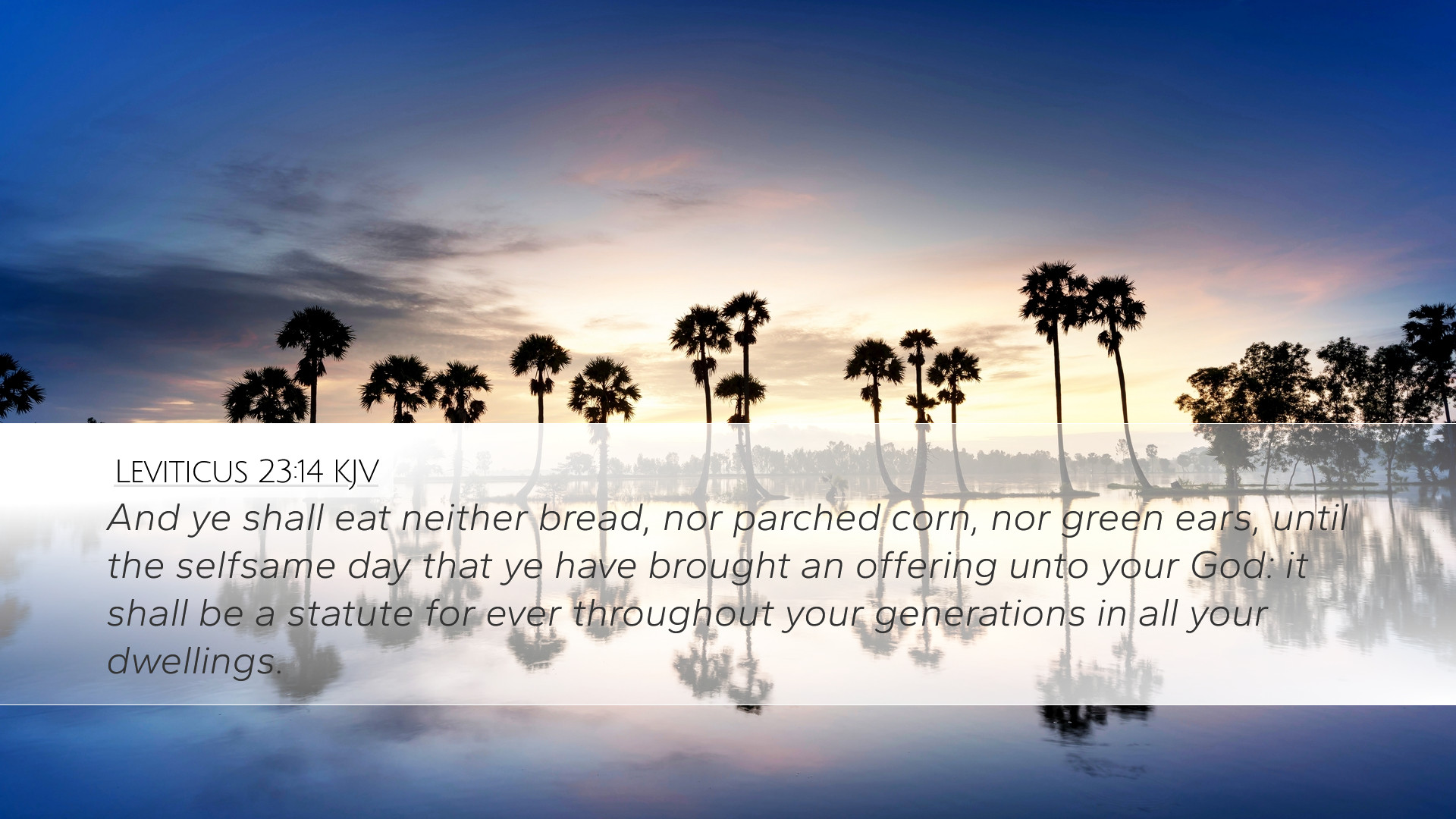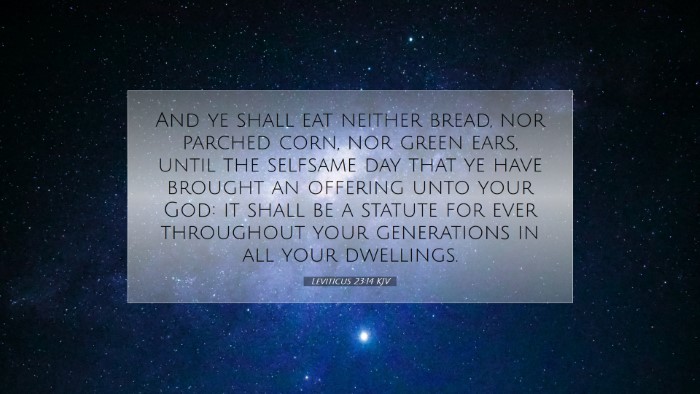Commentary on Leviticus 23:14
Bible Verse: "And you shall eat neither bread, nor parched grain, nor fresh grain, until this same day, until you have brought the offering of your God. It is a statute forever throughout your generations in all your dwellings." (Leviticus 23:14)
Introduction
The verse from Leviticus 23:14 forms part of the legislative context regarding the Feast of Weeks, also known as Pentecost. It offers crucial insights into the ceremonial laws surrounding Israel's agricultural practices and their spiritual significance. The importance of distinguishing between sacred and secular activities is emphasized in this command, establishing ongoing principles for worship and acknowledgment of God as the provider.
Historical and Cultural Context
To fully grasp the magnitude of Leviticus 23:14, it is imperative to consider the agrarian culture of ancient Israel. The Israelites were predominantly farmers, and their livelihoods were directly linked to agricultural cycles. This verse occurs in a section outlining the appointed feasts of the Lord, each of which serves to remember God's provision and dedication to His people.
Purpose of the Offerings
According to Matthew Henry, the command underscores the need for the Israelites to bring forth their firstfruits as an offering to God, signifying that the initial yield belongs to Him. This act of dedicating the first of their harvest is vital, as it not only shows gratitude but also acknowledges God’s sovereignty over the entire harvest season.
Theological Implications
This prohibition against consuming bread or grain from the harvest before offering firstfruits teaches a critical theological lesson. The act of waiting signifies trust and obedience to God’s commands. Adam Clarke emphasizes that the waiting period allows the community to reflect on their dependence on God, creating a communal and personal reminder of their covenant relationship with Him.
Interpretation and Application
The commands given in Leviticus 23, including verse 14, extend beyond ancient Israel to modern believers. Albert Barnes notes that these statutes highlight the importance of giving God the first and best of what we have. This principle of prioritization can be applied to various aspects of our lives - time, resources, and talents - reflecting the need to honor God first in all endeavors.
Spiritual Practices
- Generosity: The practice of tithing and charitable giving is rooted in the firstfruits principle. Just as the Israelites were instructed to set aside the first of their harvest, believers today are encouraged to dedicate a portion of their income to God’s work.
- Gratitude: Regularly acknowledging God’s provisions in our lives fosters a grateful attitude in the face of modern materialism.
- Worship and Reflection: Observances such as communion can be parallels to the offering of firstfruits, where believers remember Christ’s sacrifice and their dependence on His grace.
Enduring Nature of the Statute
The phrase "It is a statute forever throughout your generations" emphasizes the timeless nature of God's commands. Matthew Henry notes that these directives are not confined to a specific people in history but rather relay principles of worship applicable to all generations. The emphasis on these laws being for "all your dwellings" signifies that worship should pervade all aspects of life, promoting a holistic view of faith that transcends cultural contexts.
Community and Individual Responsibility
The collective nature of the offerings also fosters community engagement and accountability among the Israelites. Albert Barnes emphasizes that this communal aspect reinforces the notion of corporate responsibility in worship, teaching that one's relationship with God is not merely individualistic but also impacts the greater community of faith.
Conclusion
Leviticus 23:14 is an essential part of understanding Israel's sacrificial system and their covenant relationship with God. The command to abstain from consuming the new harvest until the proper offering had been made serves as a profound reminder of God’s rightful place in our lives. As modern-day readers, we are invited to reflect on what it means to offer God our firstfruits - not just of our wealth, but of our time, energy, and attention. In doing so, we not only obey God's command but also cultivate a deeper and more meaningful relationship with Him.


